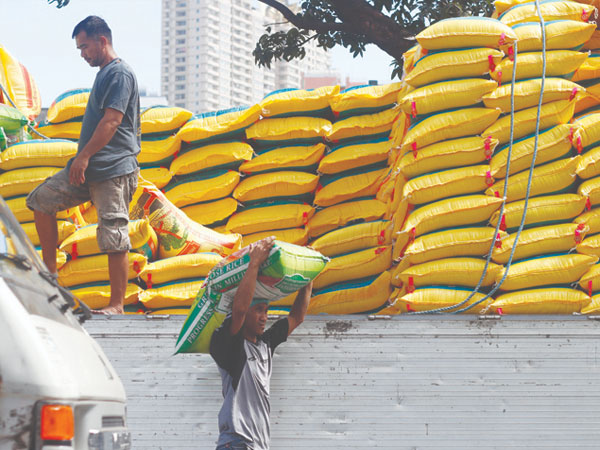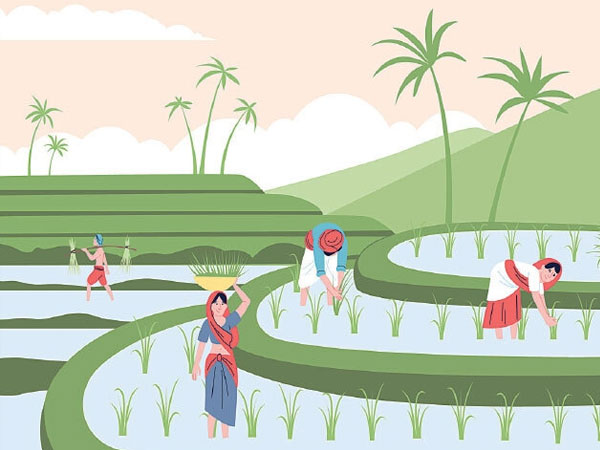 Imposing rice import bans may result in a “dual setback” if it is proven that traders and wholesalers are also involved in importing the staple, an official of the Philippine Competition Commission (PCC) said Monday.
Imposing rice import bans may result in a “dual setback” if it is proven that traders and wholesalers are also involved in importing the staple, an official of the Philippine Competition Commission (PCC) said Monday.
PCC Director Carlos Juan Paolo Vega said the import freeze could pose an uptick in retail rice prices while farmers might remain at the mercy of those holding power over rice supply.
He explained that the effect of Executive Order 93, which banned the entry of imported rice for 60 days, would depend on whether intermediate agents like wholesalers, millers, and traders have any incentive to offer a higher buying price to farmers.
“If these intermediate agents possess some degree of buyer power, farmers and palay aggregators may still face unfavorable prices,” Vega said during a hearing of the Committee on Agriculture and Food.
“What we might have then is a situation where we end up with a dual setback, where both consumers and farmers do not benefit,” he added.
Thus, those in the middle of the value chain would reap most of the policy’s gains, he said.
“Consumers might eventually bear the brunt of higher prices without the farmers necessarily benefiting from them.”
With this, Vega then called on the government to verify the extent of vertical integration among importers and determine whether the companies involved in the rice trade are independent of each other.
“So, are the importers also the ones involved in the wholesale trade, or are they also the main ones buying palay from the farmers? […] Even though they appear to be different companies, are they in essence controlled by just a few entities?”
“We believe that understanding the real structure of this market can shed more light on the issues,” he said.
However, the PCC director noted that the impact of the import ban might not yet reflect in the market due to the delay in the transmission of farmgate price data, which the government should take into account.
“We strongly believe that this policy should consider both effects downstream, alongside benefits to the farmers, and as well the degree of effective competition among middlemen and the importers,” Vega said.
The import suspension, which began on September 1, was initially imposed to help farmers recover from falling palay prices triggered by a surge in cheaper imported rice.
In the same hearing, Agriculture Secretary Francisco Tiu Laurel Jr. confirmed that the government will extend the rice import ban until the end of 2025.














© Copyright 2025 The SSResource Media.
All rights reserved.